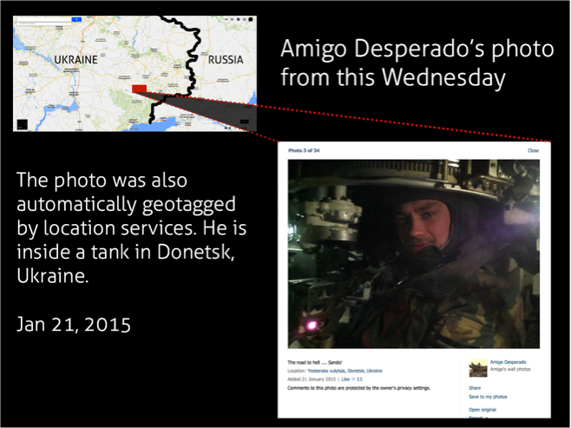class: center, middle, inverse, title-slide # Dirty Wars: Accountability for Killing ### Jack McDonald ### 2020-01-16 --- # Lecture and Seminar Outline .pull-left[ Lecture - Research Projects and the Research Essay - Identifying Research Areas - Paper Presentation: Vietnam as the First Digital Battlefield - Identifying Academic Relevance ] .pull-right[ Seminar - Discussion of the research puzzle article - Discussion about relevance of research puzzles to your own research - Q&A about anything unclear for research essay ] Everything up at: [jackmcdonald.org/teaching/dw19](https://www.jackmcdonald.org/teaching/dw19) ??? 5.1 The Big Picture: Accountability for Killing Please take time to consider what you would like to do for your final assessment prior to attending this class. This lecture will introduce five of the general components for a successful research essay: Identifying a research area, identifying an interesting research problem, constructing a theoretical framework, posing an answerable research question, and considering the implications of your research. We will be covering one of these in detail each week. In this lecture, we will discuss different processes of identifying research areas. This lecture also provides an outline of my own research project, namely, contemporary arguments about the duties of militaries to analyse the civilian deaths and collateral damage caused by their actions. I will walk you through the project and my paper, but the emphasis of the lecture will be about the process of identifying a research area. For that reason, we’ll be discussing the wider issue of accountability for killing in armed conflict. This is an important area of contemporary research, work here often transcends disciplinary boundaries, and also segues into political campaigns aimed at righting what some perceive as injustices in the way contemporary warfare is waged. We will discuss ways of working from a topic of personal interest or contemporary policy problem to a research area that connects with existing academic research. Discussion Questions: What makes an academic research project worth doing? What role does silence play in contemporary debates about civilian casualties? asd --- # Research Essay Intro .pull-left[ The Basics: - 5000 words - References count, _everyone_ uses Chicago footnote referencing - Submit by deadline of April 2, 1300 ] .pull-right[ Five components - Identifying a research area - Identifying an interesting research problem - Constructing a theoretical framework - Posing an answerable research question - Considering the implications of your research ] ??? --- class: inverse # Identifying Research Areas ??? --- class: inverse # Small Group Discussion .pull-left[ 5 minutes: What makes an academic research project worth doing? ] .pull-right[ 10 minutes: How much effort do you think you need to make in your research essay to justify your research topic? - Do you agree/disagree? - Does the differences between your research topics matter in your agreement/disagreement? ] ??? --- # Ways of Justifying Research .pull-left[ - Academic Importance - Policy Relevance - Personal interest ] .pull-right[  ] ??? --- class: inverse # Small Group Discussion .question[ How do you make a policy problem relevant to academic disciplines? ] ??? --- # Academic Importance and Policy Relevance .pull-left[ Theoretical Importance - Development of original theory - Contribution to ongoing academic debates - Testing of theory with new evidence Empirical Importance - New data collection - Reassessment of existing data ] -- .pull-right[ Policy relevance relates to "real world problems" in public policy This is an extremely large category, so usually importance is defined relative to international or national impact on society/politics Often involves the study of solutions to long-term issues, addressing current crises, or identifying future policy problems ] ??? --- class: inverse # Data Ethics in Armed Conflict-Contemporary Problems Beyond the Just War Tradition ??? --- # Paper Intro .pull-left[ .medium[ Research confluence - Targeted killings & ethics - Autonomous weapon systems ISA 2017: - Individuated Warfare and Permissible Patterns of Life - Are You Certain, Hal? - Artificial intelligence and epistemic uncertainty as a challenge to revisionist just war theory - Forked research: Ethics & AI Governance ] ] .pull-right[ .medium[ ISA 2018: - Data Ethics in Armed Conflict-Contemporary Problems Beyond the Just War Tradition ISA 2019: - On Doxxing Little Green Men For publication: - Rational Nescience or Strategic Ignorance? Epistemic Approaches to Civilian Casualty Reporting in Contemporary Conflicts ] ] ??? Working papers are works in progress - Ideas sparked by current events/research - Developed critiques of current research - Presentations of proposed research projects - Presentations of emerging results from research - Finalised papers ready for publication, in press, or recently published research ("job market papers") asd --- # Information, Identity & Identification .left-column[ (Yes, I use this photo in professional talks) ] .right-column[ .picblock[  ] ] ??? --- # War in the Information Age .pull-left[  Harms associated with surveillance not typically analysed in JWT Digital ICTs re-shaping contemporary conflict, giving rise to new ethical dilemmas ] .pull-right[  ] ??? --- # Privacy Norms and Just War Theory .pull-left[ A “privacy/targeting trade-off”? - Privacy norms are contested - Logic of privacy = minimal information collection - Logic of JWT = maximal information collection ] .pull-right[ Structure of Just War Theory analysis - Constitutive & variable information - Individual and social levels of justification ] ??? --- # Wider Importance Jus Post Bellum - Data retention Data collection & professional ethics - Humanitarian ethics - Human rights - Journalism/open source investigation ??? --- class: inverse # Counting Civilian Casualties ??? --- # Policy Issue: Reporting Civilian Casualties .medium[ The US government today [2016] claimed it has killed between 64 and 116 “non-combatants” in 473 counter-terrorism strikes in Pakistan, Yemen, Somalia and Libya between January 2009 and the end of 2015. ] -- .medium[ This is a fraction of the 380 to 801 civilian casualty range recorded by the Bureau of Investigative Journalism from reports by local and international journalists, NGO investigators, leaked government documents, court papers and the result of field investigations. ] -- .medium[ While the number of civilian casualties recorded by the Bureau is six times higher than the US Government’s figure, the assessments of the minimum total number of people killed were strikingly similar. The White House put this figure at 2,436, whilst the Bureau has recorded 2,753. Jack Serle, _Obama drone casualty numbers a fraction of those recorded by the Bureau_ ] ??? https://www.thebureauinvestigates.com/stories/2016-07-01/obama-drone-casualty-numbers-a-fraction-of-those-recorded-by-the-bureau --- # How Many People Died, Who is Responsible? .pull-left[ .medium[ > States have longstanding obligations under international humanitarian law to record and share details of military personnel killed in conflict. However, historically there has been no clear recognition of States’ responsibility to record deaths of civilians, and few state-led efforts to conduct such recording. Every Casualty, _Casualty Reporting Background Paper_ ] ] .pull-right[ .medium[ > the moral responsibility for collateral damage is not simply individual, but a consequence of the organization of war. The causes and remedies for collateral damage are thus about organizational changes. Neta C. Crawford, _Accountability for Killing_ ] ] ??? https://www.everycasualty.org/downloads/ec/pdf/everycasualty-background-paper-oct-2019.pdf Crawford quote p.471 --- class: inverse # Open Question .question[ How would you approach this topic for an academic research project? ] ??? --- # Why Might CIVCAS Matter for Academics? .pull-left[ Disciplines - Security studies - Strategic studies - International relations - Ethics - International law - Public health ] .pull-right[ Fields/issues - Strategic communications - Human rights - Contemporary conflict - Silence in IR ] ??? --- # Conclusions .pull-left[ My aim in this 5 lecture series is to demonstrate how you go from an intellectual interest or gut-feeling that something is worth researching to a well-formed academic research project If you _haven't_ thought about your research project yet, do so before next week ] .pull-right[ - Identifying a research area - Identifying an interesting research problem - Constructing a theoretical framework - Posing an answerable research question - Considering the implications of your research ]